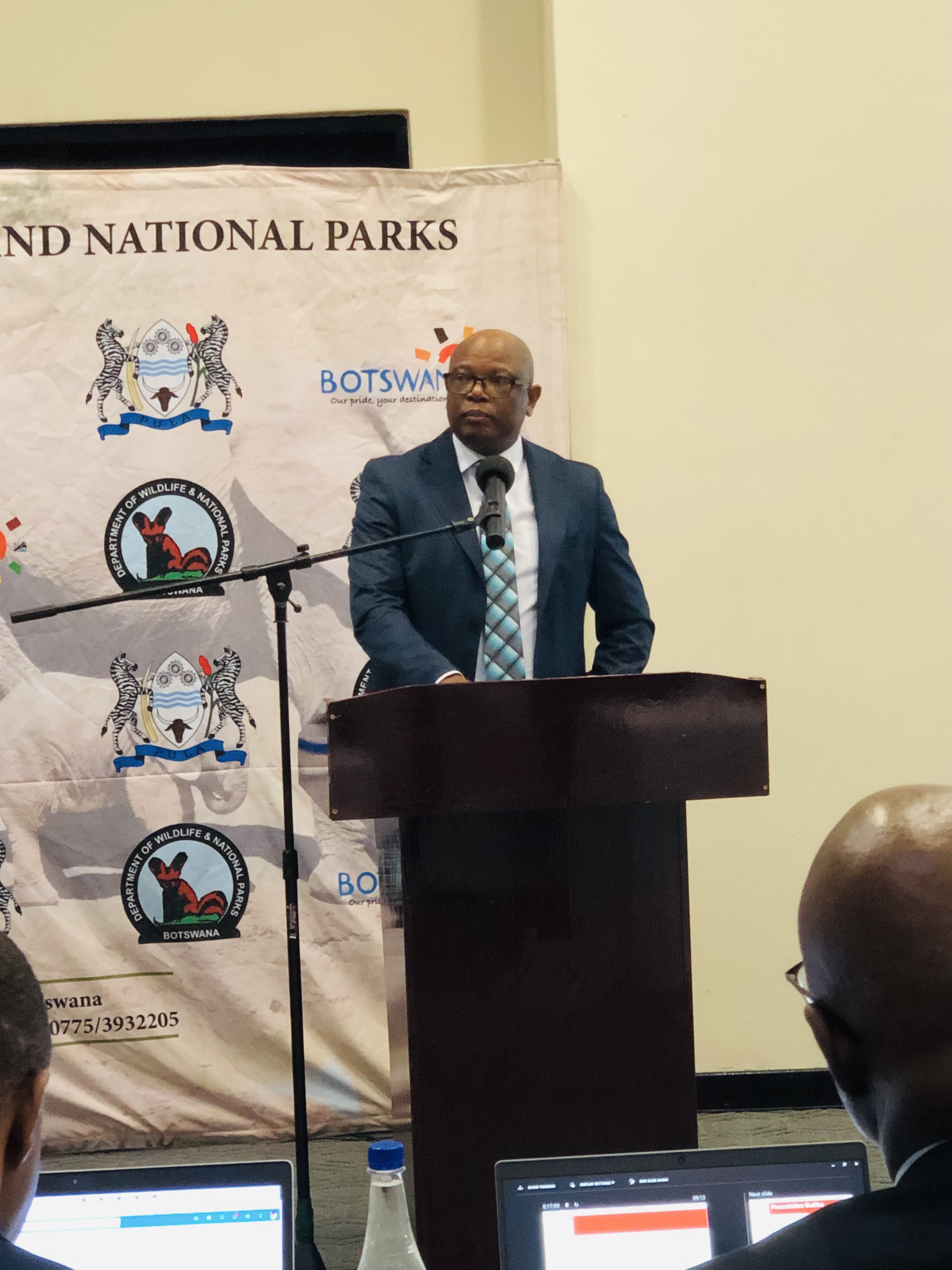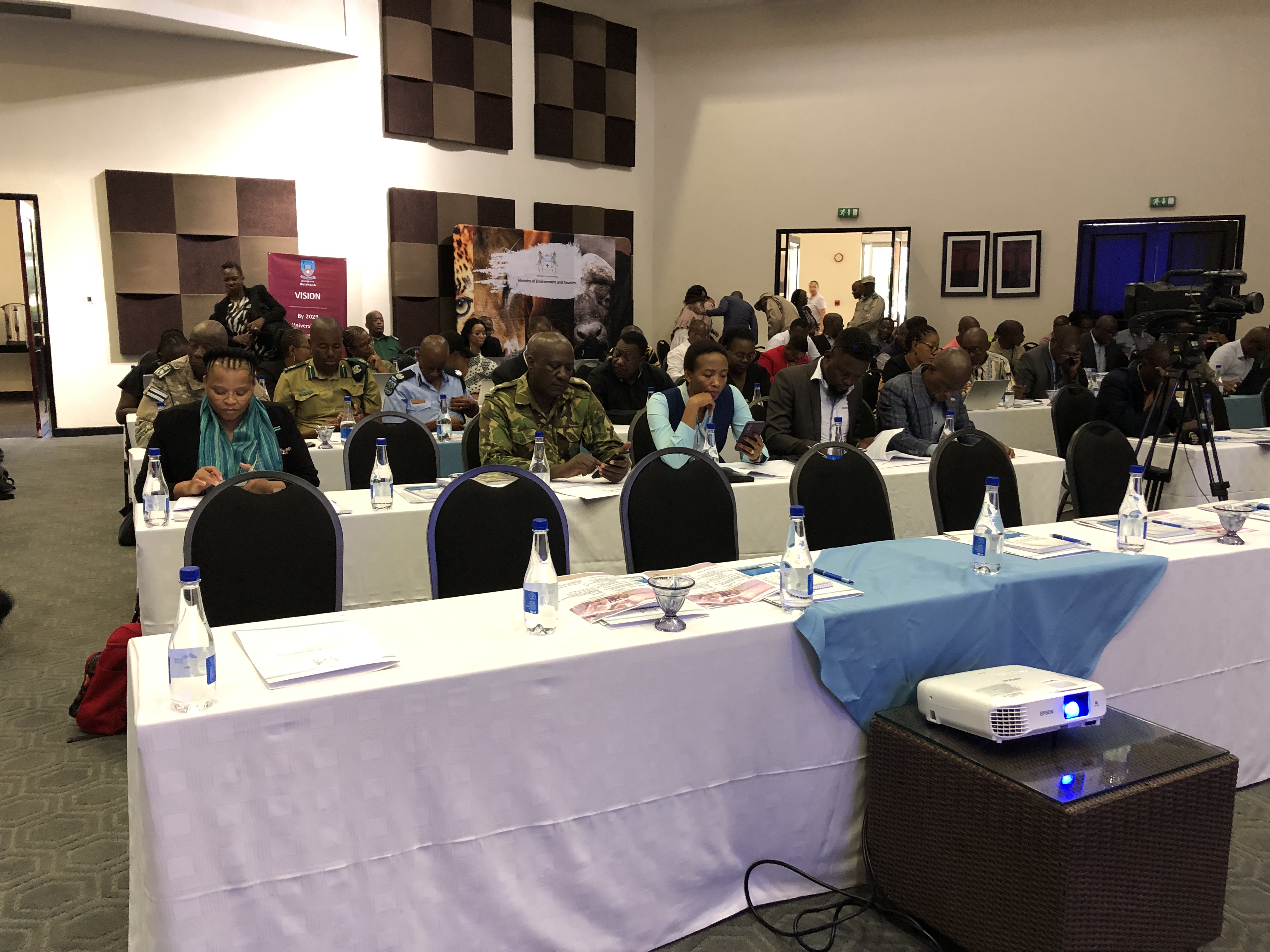ORI and Ministry Validate National Strategy to Tackle Human-Wildlife Conflict in Botswana
 The Minister of Environment and Tourism, Mr Wynter Mmolotsi, has unveiled Botswana’s National Human-Wildlife Conflict Strategy and Action Plan (2025-2030) which is a criticall initiative aimed at mitigating conflicts between communities and wildlife. The strategy was officially validated at a workshop hosted by the Okavango Research Institute (ORI) in collaboration with the Ministry of Environment and Tourism at Cresta Lodge, Gaborone recently.
The Minister of Environment and Tourism, Mr Wynter Mmolotsi, has unveiled Botswana’s National Human-Wildlife Conflict Strategy and Action Plan (2025-2030) which is a criticall initiative aimed at mitigating conflicts between communities and wildlife. The strategy was officially validated at a workshop hosted by the Okavango Research Institute (ORI) in collaboration with the Ministry of Environment and Tourism at Cresta Lodge, Gaborone recently.
Speaking at the event, Minister Mmolotsi explained that the development of the strategy was driven by a resolution from the Human-Wildlife Conflict National Pitso held in Gaborone in October 2023. He explained that human-wildlife conflict was a complex issue with ecological, socio-economic and management dimensions which necessitated collaboration among various stakeholders.
“This strategy was formulated through an inclusive, nationwide consultative process including Kgotla meetings and forums. It requires the collective efforts of wildlife managers, academics, NGOs, communities and local leaders to develop sustainable solutions,” said Mr Mmolotsi.
The workshop brought together government officials, conservationists, wildlife experts and community representatives to finalise a framework that addresses the increasing challenges posed by human encroachment on wildlife habitats.
The Permanent Secretary in the Ministry of Environment and Tourism, Mr Boatametse Modukanele, underscored the importance of the initiative, highlighting that the strategy was designed to refine and implement mechanisms for managing human-wildlife interactions. “With factors such as population growth and habitat encroachment exacerbating conflicts, this strategy provides concrete measures to mitigate risks and promote coexistence,” he said.
 Deputy Mayor of Gaborone, Ms Mankie Sekete, in her welcome remarks, described the validation of the strategy as a significant milestone in Botswana’s conservation efforts. “This event brings together key stakeholders united in their commitment to finding sustainable solutions that balance human needs with wildlife preservation,” she stated.
Deputy Mayor of Gaborone, Ms Mankie Sekete, in her welcome remarks, described the validation of the strategy as a significant milestone in Botswana’s conservation efforts. “This event brings together key stakeholders united in their commitment to finding sustainable solutions that balance human needs with wildlife preservation,” she stated.
The strategy and action plan outline key interventions, including conflict resolution mechanisms, public awareness campaigns and policies aimed at preventing and minimising wildlife-related damages. ORI’s role in hosting the validation workshop underscores its dedication to research-driven conservation strategies that ensure both biodiversity protection and the well-being of affected communities.